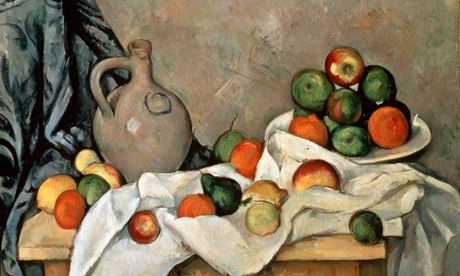
Having survived the winds of winter, the plum tree outside is now bursting into simultaneous leaf and flower, a little late but vigorously. It's the first real sign that spring is finally here, with a hope of better weather to come. More delightful still is the promise those white flower buds bear plump, juicy purple plums this autumn.
Inevitably, for a reader of poetry to think of plums is to think of William Carlos Williams's poem This Is Just to Say with its celebration of cold sweet plums fresh from the fridge, which is, in turn, really a marking of the virtues of simple domesticity and a life shared with another, or others.
Fruit is for sharing, with friends, with family and with neighbours. In Hayden Carruth's Bears at Raspberry Time, the fruit is shared with a family of bears who also happen to be neighbours. The simple act of overcoming fear to allow the bears their share in the feast of raspberries becomes emblematic of what is required of us if we are to learn to live with the non-human world around us. I can't but find it fitting today that the dream in which this becomes clear to the poet centres around a plum tree.
The melon in Charles Simic's poem of that name is, at first glance at least, just a big juicy piece of fruit being sliced up and divided between a bunch of happy kids. It seems like it's early summer (the kids are still at school), and warm enough for melon to cause great hilarity. However, in a moment that reminds me of the casual, parenthetical mention of the death of Mrs Ramsay in To the Lighthouse, the very foundation of their happiness is gently rocked by the observation that the mother '[w]ould not live to see the leaves fall'; and yet that moment of delight in the shared fruit lives on in the poem.
Other memories of childhood are summoned by a New York shop window display of fruit, in the Jamaica-born poet Claude McKay's The Tropics in New York. McKay was far from family and home and while the visions evoked by the familiar fruits are at first sunny, by the end of the poem homesickness overwhelms him and he is reduced to tears.
All this fruit doesn't just grow on trees, you know. It has to be tended and harvested carefully and it takes a farmer-poet like Robert Frost to bring this work to life, as he does in After Apple-Picking. Frost is in no way inclined to romanticise his toils in the orchard, but makes us feel the aches and pains attendant on the picking of thousands of apples and the farmer's resentment of the work he had made for himself.
Although roughly his contemporary, HD was a very different kind of poet to Frost. However, her reputation for being a somewhat fastidious and coldly classical writer is undermined by her strong rejection of over-careful cultivation in Sheltered Garden. Better, she says, fruit that tastes a little tart because it was grown naturally than that which owes its artificial sweetness to "'wadding and dead grass".
The sheltered garden of HD's poem evokes images of Eden and the forbidden fruit. Emily Dickinson died in the year of the younger poet's birth, but her four-line poem Forbidden fruit a flavor has forms an interesting counterpoint to HD's poem.
This spring month's Poster Poems challenge is to write poems in anticipation of the autumn fruit that is starting to form in our gardens, orchards and farms as we speak. Fruit in poems is frequently shared and enjoyed together, so here's a chance to share your fruit poems.

